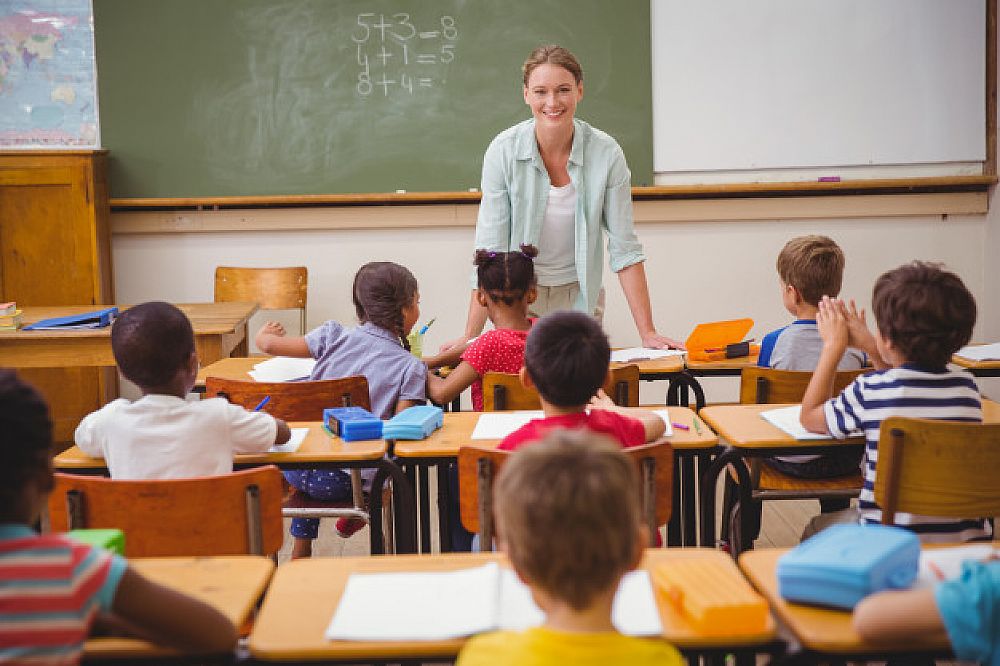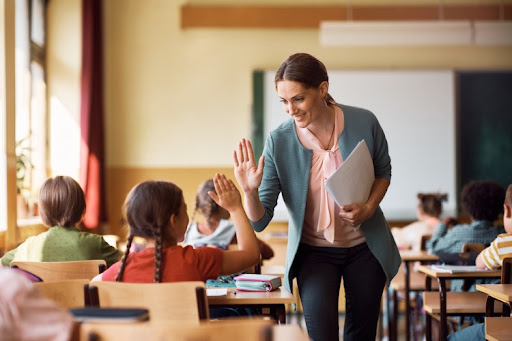Accelerate Learning with Primary Science Tuition Singapore for Young Minds
Wiki Article
Discovering the Various Training Techniques in Primary Scientific Research Education And Learning Today
Inquiry-based learning, hands-on experiments, and the assimilation of modern technology are redefining just how educators involve young minds. Additionally, collaborative methods and differentiated guideline are being utilized to provide to the varied demands of pupils, boosting both interaction and understanding.Inquiry-Based Discovering
Inquiry-Based Knowing (IBL) is an instructional technique that urges trainees to check out scientific ideas with doubting, examination, and hands-on testing. This approach emphasizes the function of pupils as active participants in their discovering, promoting crucial thinking and analytical skills. By involving with real-world concerns, students become interested and motivated, which enhances their understanding of scientific principles.In IBL, educators work as facilitators, leading students as they navigate their questions instead of supplying information straight. This student-centered approach permits distinction, accommodating various discovering designs and speeds. Trainees establish abilities in developing hypotheses, making experiments, and assessing data, which are important for clinical literacy.
Additionally, IBL promotes cooperation among pupils, motivating them to share findings and ideas. This collective inquiry advertises social skills and a feeling of community within the classroom. The procedure of questions urges strength, as students discover to accept failing as a stepping stone towards understanding.
Hands-On Experiments
Hands-on experiments are a vital element of reliable scientific research education and learning, enhancing the principles of inquiry-based knowing. These experiments allow pupils to engage directly with clinical concepts, fostering a much deeper understanding through experiential understanding. By manipulating products and observing outcomes, young students can realize abstract theories in concrete ways.Such activities advertise critical thinking and analytical abilities, as trainees hypothesize outcomes, conduct experiments, and evaluate results. This process motivates them to ask questions, improve their understanding, and establish a clinical attitude. Hands-on experiments can be customized to varied learning styles, guaranteeing that all pupils have the possibility to involve meaningfully with the material.
Additionally, hands-on experiments frequently encourage cooperation amongst peers, advertising synergy and interaction skills. Working in teams allows students to share ideas, talk about findings, and gain from each other, which improves their total educational experience.
Including hands-on experiments into the key scientific research curriculum not only enriches the finding out environment however also grows a lifelong interest in scientific research. By actively taking part in their education, trainees are most likely to create a passion for clinical inquiry that extends beyond the class.

Modern Technology Assimilation
Integrating modern technology into main science education has ended up being progressively vital in promoting student involvement and enhancing discovering outcomes. Using digital devices, such as interactive simulations, virtual laboratories, and educational software application, supplies students with chances to discover scientific concepts in ingenious means. These resources promote a deeper understanding of complicated topics by allowing students to envision and adjust variables that would certainly be unwise in a traditional classroom setting.Additionally, innovation integration motivates customized finding out experiences. Trainees can proceed at their own speed, reviewing challenging ideas through multimedia sources, which deal with different knowing styles. This adaptability not just sustains specific development however also cultivates a feeling of autonomy in learners.
Furthermore, modern technology acts as a bridge to real-world science, attaching trainees with current study and specialist payments. Access to online data sources and scientific journals expands students' viewpoints on scientific inquiry and fosters essential assuming abilities.
Collaborative Understanding
Collective understanding plays a vital Discover More Here role in primary scientific research education and learning by cultivating synergy and interaction abilities among pupils. This method urges learners to work together, share understanding, and take part in analytical, which improves their understanding of clinical ideas. By taking part in group tasks, students find out to verbalize their ideas, pay attention to diverse perspectives, and bargain solutions, all of which are crucial abilities in both scholastic and real-world contexts.
Research shows that collective knowing can bring about enhanced inspiration and engagement in scientific research subjects, as pupils discover enjoyment in shared experiences (primary science tuition Singapore). In addition, this approach prepares pupils for future collective endeavors, furnishing them with the abilities necessary for effective team effort in greater education and learning and expert atmospheres. Eventually, accepting joint understanding in main science education can dramatically enrich the see here now discovering experience and advertise a deeper understanding of scientific query
Set Apart Guideline

Set apart direction can materialize in different ways, such as differing the web content, procedures, or items of discovering. Educators may use tiered assignments that supply differing levels of complexity, permitting pupils to function at their particular readiness levels. In addition, versatile grouping techniques can help with cooperation among trainees with various capabilities, cultivating peer discovering.
Analysis plays a critical role in this method, as it informs instruction and aids teachers understand each pupil's distinct requirements. Developmental assessments, such as monitorings and tests, can assist instructors in readjusting their techniques to boost finding out end results. primary science tuition Singapore. Ultimately, by executing differentiated instruction in key scientific research education and learning, teachers can cultivate a more fair and effective learning setting, equipping all students to reach their full potential in recognizing clinical sensations
Verdict
In pop over here recap, the diverse teaching strategies in key science education and learning, including inquiry-based learning, hands-on experiments, technology combination, collaborative discovering, and set apart instruction, jointly add to a more efficient knowing setting. These techniques advertise crucial thinking, analytic skills, and a much deeper comprehension of clinical concepts. By applying these techniques, educators can develop supportive and interesting class that resolve the diverse needs of trainees, inevitably promoting a lifelong rate of interest in scientific research and enhancing scholastic accomplishment.Inquiry-Based Understanding (IBL) is an instructional method that encourages students to discover scientific ideas through questioning, investigation, and hands-on testing.Joint knowing plays a vital role in key science education and learning by promoting teamwork and communication skills among trainees.Research shows that joint learning can lead to raised inspiration and interaction in science topics, as students locate satisfaction in shared experiences.In promoting a comprehensive knowing atmosphere, distinguished instruction arises as a vital strategy to accommodate the diverse requirements and abilities of pupils in key science education and learning. Ultimately, by applying separated guideline in main scientific research education, teachers can grow a much more fair and effective knowing environment, empowering all students to reach their full possibility in understanding scientific sensations.
Report this wiki page